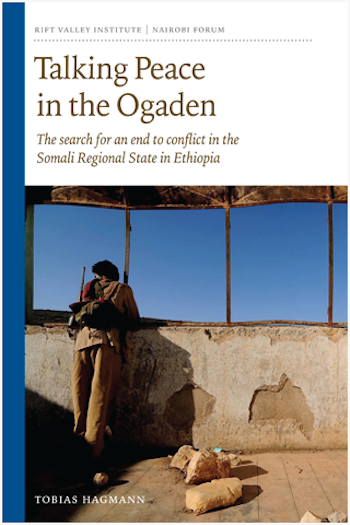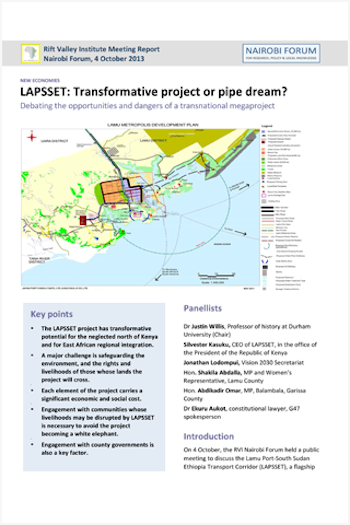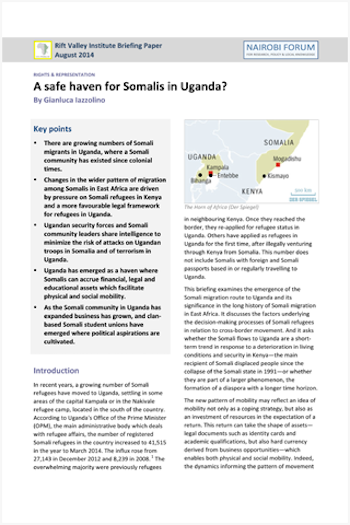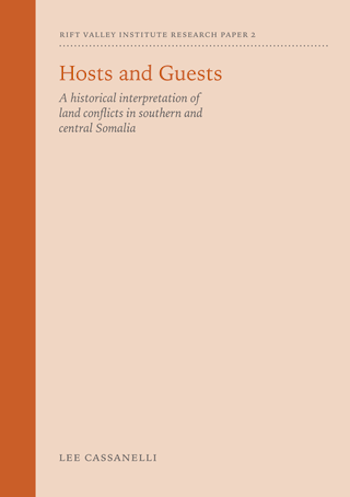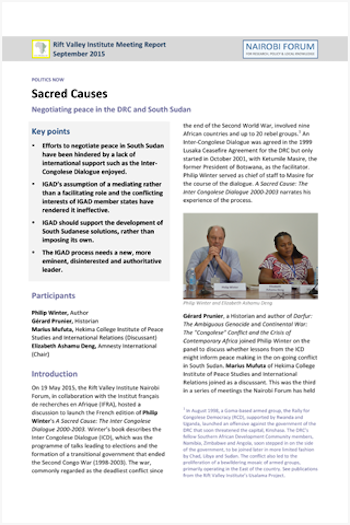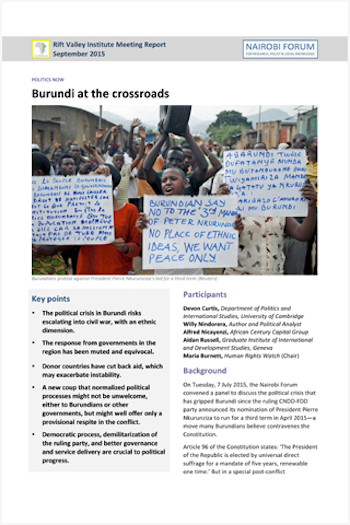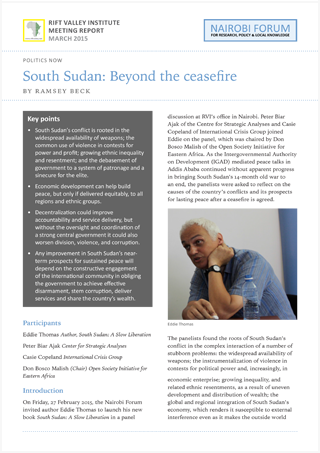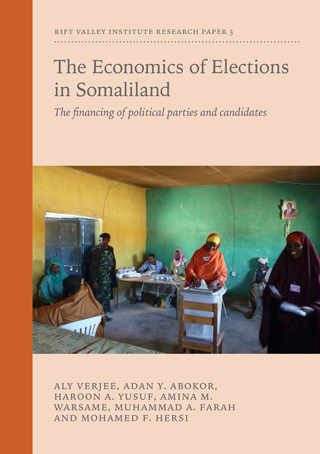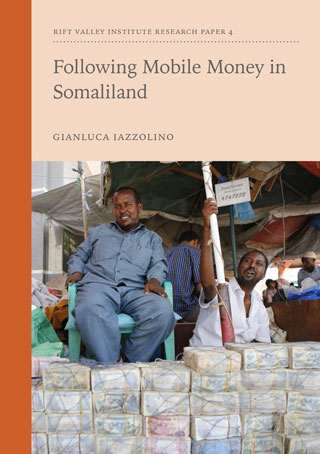‘Objective, analytical and balanced.’ IBRAHIM FARAH, UNIVERSITY OF NAIROBI Summary Talking Peace in the Ogaden outlines the modern history of ethnic Somalis in relation to the Ethiopian state from the late 19th century to the present day, and assesses…
RVI publishes books, research reports, research papers, briefings and meeting reports in a range of formats. Publications cover policy, research, arts, culture and local knowledge in the countries of eastern and central Africa. Research publications—books, reports and papers—are peer-reviewed. Some RVI publications are also available in French and/or Arabic.
The RVI is a signatory of the Budapest Open Access Initiative (2001); all publications are free for download in PDF format under Creative Commons licences. The views expressed in books and reports published by the RVI are those of the authors, not the Institute.
SEARCH
PUBLICATION TYPE
LANGUAGE
REGION
COUNTRY
Key points The LAPSSET project has transformative potential for the neglected north of Kenya and for East African regional integration. A major challenge is safeguarding the environment, and the rights and livelihoods of those whose lands the project will…
This briefing examines the emergence of the Somali migration route to Uganda and its significance in the long history of Somali migration in East Africa. It discusses the factors underlying the decision-making processes of Somali refugees in relation to…
‘In Somalia, land issues are particularly complex. Those involved in both policy and practice need to understand this complexity better if durable political solutions are to be identified and property rights for individuals and communities secured. Lee Cassanelli explains…
Key points • Efforts to negotiate peace in South Sudan have been hindered by the lack of a coherent international approach such as the Inter-Congolese Dialogue eventually enjoyed. • IGAD’s assumption of a mediating rather than a facilitating role…
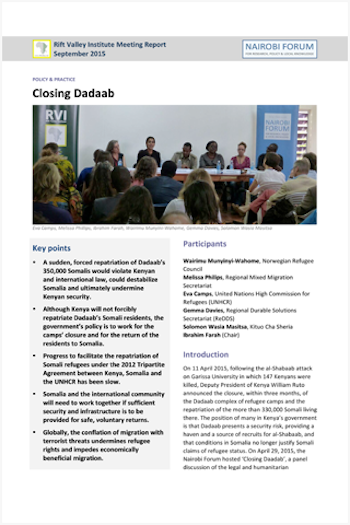
- By Nanjala Nyabola
- Download
Key points • A sudden, forced repatriation of Dadaab’s 350,000 Somalis would violate Kenyan and international law, could destabilize Somalia and ultimately undermine Kenyan security. • Although Kenya will not forcibly repatriate Dadaab’s Somali residents, the government’s policy is…
Key points • The political crisis in Burundi risks escalating into civil war, with an ethnic dimension. • The response from governments in the region has been muted and equivocal. • Donor countries have cut back aid, which may…
On Friday, 27 February 2015, the Nairobi Forum invited author Eddie Thomas to launch his new book South Sudan: A Slow Liberation in a panel discussion at RVI’s office in Nairobi. Peter Biar Ajak of the Centre for Strategic…
‘The information in the report is accurate and ‘spot on’ … there is a lot to learn from this important issue.’ SUAD IBRAHIM ABDI, PROGRESSIO, SOMALILAND ‘The study is unique in the research questions it raises and in the…
‘This study provides an interesting and unusual insight into the state-building process in Somaliland. Taking Zaad—our everyday companion here in Somaliland—Iazzolino explores the intricate nature of private and public sector relations. Vividly mapping the landscape of the mobile money…
Recent Publications

Rethinking Aid in Sudan and South Sudan
January 28, 2026
The brief draws on a joint convening held in Kampala, Uganda, in November 2025, which brought together more than 45 Sudanese and South Sudanese participants representing more than 30 grassroots organizations and international NGOs. Its primary objective is to amplify

EWNET Writes: Writing Workshop Session I
December 18, 2025
The Ethiopian Women Researchers Network (EWNET) inaugural writing workshop series aims to not only provide women researchers with uninterrupted time for their scholarly projects, but also build a supportive academic community. The first session, entitled ‘EWNET Writes: Writing Workshop Session

SSC-Khaatumo: Perspectives on the significance and implications of its formation
December 12, 2025
On 15 April 2025, during a visit to the city of Las Anod in Sool, Prime Minister Hassan Abdi Barre officially declared the federal government’s recognition of SSC-Khaatumo (SSC-K hereafter) as a federal member state, marking an important milestone in

